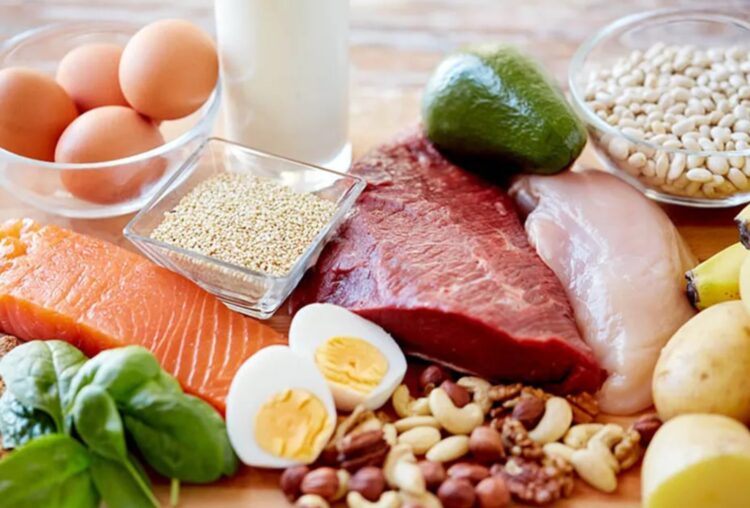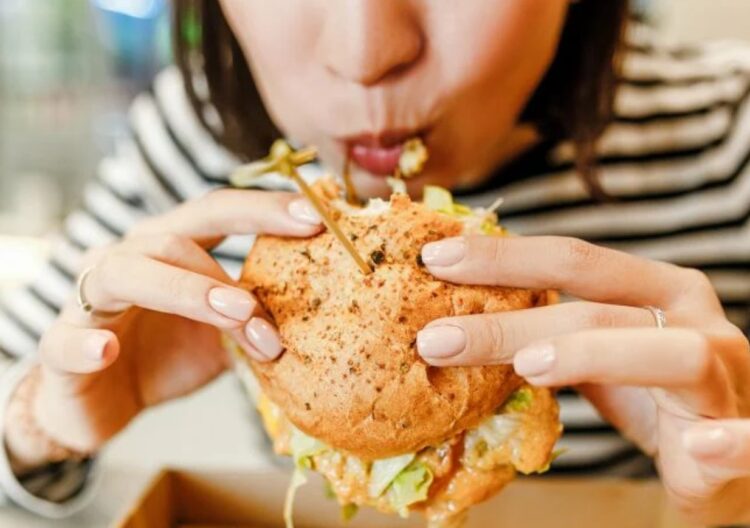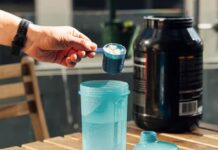
If lockdown has impacted your body for the worse, this article is designed to help you get back in shape.
Many people who were previously skeptical about how much your body can change in a short space of time, now understand the reality and the impact of bad habits (even in the short term).
If you have gained notable amounts of weight, don’t worry as you aren’t alone; and as quickly as you gained it (you can also lose it).
Although it’s understandable how some may get out of shape during quarantine, other individuals have proven that if you have the willpower, you can still undergo the transformation of your life – no matter what your circumstances.
How to Transform Your Body During Lockdown
- Keep active
- Stick to protein
- Supplementation
- Keep hydrated
- Avoid comfort eating
1. Keep Active

Some men and women who were in good shape pre-lockdown have lost muscle mass and gained fat. The bad news is, if you go from exercising regularly to being sedentary, you will lose your gains (whether that’s muscle mass or your cardiovascular ability).
However, the good news is – once you start working out again, your body will restore your previous fitness level equally as fast. InsideBodybuilding.com states that your muscle mass will return in just a matter of weeks, after you start pumping iron again.
There are many ways to keep active from gardening, using a home-gym, hiring a virtual personal trainer to do body weight exercises and more. For individuals who lack motivation to workout in their own home, a virtual PT may be a shrewd investment to re-ignite your love for exercise.
2. Stick to Protein

Many people have a lot more time on their hands now, which can lead to boredom eating. To prevent snacking and binge-eating, it’s beneficial to follow a high protein diet.
Not only is protein the lowest macronutrient (with carbohydrates), but it also fills you up for longer periods of time. Thus, you will naturally want to eat less food throughout the day; increasing your chances of eating in a calorie deficit and losing weight. Many people are struggling with eating disorders and its hard for them. If you are interested more about it and if you want to check if you have the symptoms of an eating disorder, check out this website.
Some popular sources of protein are:
- Chicken
- Eggs
- Fish
- Protein shakes
- Red meat
- Beans
- Legumes
- Cottage cheese
- Nuts
Protein will also help to increase nitrogen retention inside the muscles, creating a muscle-building environment in the body. For maximum muscle gains, Healthline recommends to consume up to 1 gram of protein per lb of body weight. Thus, a 200lb man would consume 200 grams of protein daily, spaced out in several meals throughout the day; keeping a constant flow of protein synthesis.
Protein will also aid in recovery, reducing fatigue and enabling users to train more frequently.
If you are sick of eating the same protein sources you can treat yourself with a protein bar or a tasty protein shake; just make sure it’s not loaded full of sugar.
3. Supplementation

Lockdown has been a stressful time for many, thus cortisol has been a culprit for some who have gained noticeable amounts of belly fat.
Cortisol is the stress hormone that, when high for sustained periods of time, can cause the body to eat up muscle; whilst distributing fat to stubborn areas.
Sometimes stress cannot be avoided, thus if you are going through a tough time it may be worth supplementing with vitamin c.
Research has found that 1000mg of vitamin c can slash cortisol levels significantly, helping to keep this dreaded hormone at bay; whilst keeping your gains intact.
Fat burners can also be taken to elevate your metabolism, however their effects are going to be minimal, compared to your eating habits and exercise routine.
Other ways to keep cortisol from rising is to get ample sleep (7+ hours) and eat plenty of calories. For those who have gained fat from quarantine, they may want to eat less to burn off the excess weight. However, to prevent cortisol from spiking, it’s optimal to only eat in a small calorie deficit. This is also the correct dieting strategy to retain muscle, whilst burning fat. Eating too few calories will raise stress levels, causing an adverse effect on body composition.
4. Keep Hydrated

Water is one of the best weapons to help lose weight. Firstly, by drinking large amounts of water it can keep your stomach full (decreasing the desire to eat).
Secondly, water is a mild stimulant that increases adrenaline. This leads to enhanced concentration, energy and motivation throughout the day (encouraging exercise).
Thirdly, water acts as a diuretic when you drink more of it. The body’s self defence mechanisms kick in and its answer is to flush out as much water as possible, when a lot is coming in. Thus, by drinking more water you can actually decrease bloating and skin puffiness. Equally, if you are to drink small amounts of water, the body recognizes this and signals to retain as much fluid as possible.
Aim to drink at least 2 litres a day, which is likely to boost your mood; as well as aiding weight loss.
Eating fruits and vegetables with higher water content, such as the ones below, will help to improve hydration:
- Cucumbers
- Tomatoes
- Broccoli
- Spinach
- Sprouts
- Apples
- Oranges
- Mushrooms
- Blueberries
- Melon
5. Avoid Comfort Eating

This is easier said than done. Those who are unable to resist temptation once opening the fridge or cupboards, should know that the damage is done in the supermarket — not at home.
If you can avoid stocking up on junk foods and sinful snacks, the temptation is not there.
Thus, be diligent when doing your shopping – and those love handles may soon disappear.
If your hunger is getting the best of you, it may also be worth taking an appetite suppressant supplement.
Cutting out sugar will also help to reduce cravings, as your blood sugar levels will become more stable. This means you’ll become less susceptible to becoming hungry throughout the day, and your energy levels will remain constant; preventing crashes (where you need to rely on sugary snacks and caffeine to pick yourself up).











